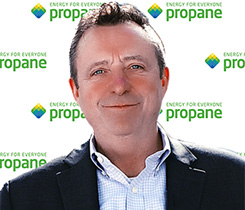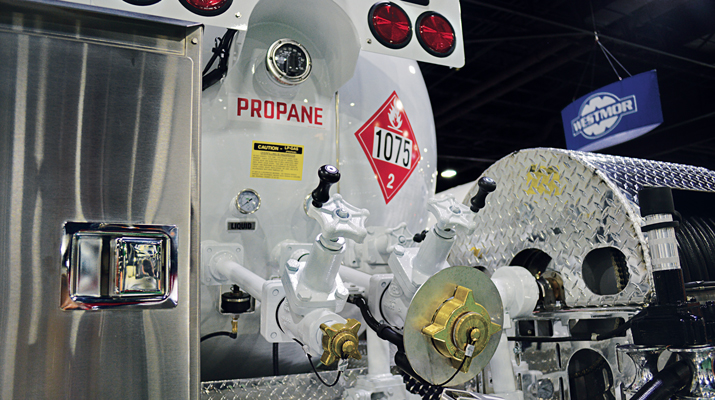Emotional exhaustion
It’s common these days to hear about someone suffering from exhaustion. Yet the standard medical reference book identifies no disease or illness called “exhaustion.” So why are so many being treated for something that doesn’t even exist?
 |
Because exhaustion is a combination of different symptoms, the medical literature finds it difficult to categorize. Virtually anyone can experience emotional exhaustion, but it’s especially common in small business owners – people who juggle lots of responsibilities and commitments. It can also affect middle and senior level executives in larger organizations, but for different reasons.
According to John-Henry Pfifferling, founder and director of the Center for Professional Wellbeing in Durham, N.C., some managers are natural people-pleasers and will end up emotionally exhausted because they feel compelled to take on more and more work. “It is easy for organizations to take advantage of people like this,” says Pfifferling.
In one case, a chief operating officer had to resign from her job and take six months off to recover. “They put more and more on her, and she continued to take it all on. Since she wasn’t assertive enough to say no, the organization was only too happy to keep piling the work on,” Pfifferling says.
Since nobody ever took the time to thank her or show appreciation, she never felt she was doing enough. Finally, she couldn’t handle any more.
“When she resigned, she was told the organization was hiring four people to replace her,” says Pfifferling.
What is emotional exhaustion?
Emotional exhaustion is one of three elements of burnout, a syndrome of emotional exhaustion, depersonalization and reduced personal accomplishment that can occur among individuals who do some sort of people-work.
Depersonalization is a feeling of being disconnected from other people and the need to get away from people as much as possible. A reduced personal accomplishment is a fear that you are failing or having little feelings about your accomplishments.
Emotional exhaustion, the most noticeable and serious component of burnout, involves the feeling that you are completely drained by work demands, other people, or both. You get so emotionally tired that you lose control of your emotions.
Physical symptoms include fatigue, insomnia, gastrointestinal problems and rapid breath. Emotional symptoms can include sadness or depression, negativity, increased cynicism and anxiety. Mental symptoms often involve decreased creativity and ability to concentrate. Socially, they are quick to anger, defensive and on edge.
Those suffering exhaustion often arrive at one simple conclusion, according to Philip Chard, president and CEO of NEAS Inc., a Waukesha, Wisc. consulting firm: “Nothing matters anymore.”
“Some people turn to things such as alcohol, drugs or other forms of addiction. If you don’t get help, you start making poor decisions at work,” adds Greg Jantz, director of The Center for Counseling & Health Resources in Edmonds, Wash.
What causes burnout?
According to Chard, at-risk executives include those who are task-focused, want to be excessively productive, have problems when they don’t succeed, have a high need for order and struggle with ambiguity.
Executives who involve themselves personally in their work also are prone to emotional exhaustion, according to Ronald G. Downey, professor of psychology at Kansas State University in Manhattan, Kan.
“These are individuals who are in charge of several people, but also find themselves in mentoring roles for one or more of these people,” he says. “They are not only coming to the executives with work-related problems, but also with personal problems.”
According to Pfifferling, business owners and other executives can also suffer from emotional exhaustion because they may not have anyone else to talk to about what they’re going through.
Prevention strategies
The best way to prevent emotional exhaustion is to change your focus. Realize that the key to success in business is to be able to run a marathon, not a sprint. “This involves diet, exercise, sleep and not taking on more work than you can handle. Marathoners constantly refuel themselves. If they don’t, they cramp up and can’t finish the race,” says Jantz.
For Vince McDaniel, credit manager for Scott Petroleum Corp. in Itta Bena, Miss., the most stressful part of his job is bankruptcies and lawsuits to obtain judgment.
“Unfortunately, with 28,000 customers, you end up having to deal with two or three bankruptcies per day,” he says.
To help prevent burnout, McDaniel takes time to garden. “I love to garden,” he says. “After I stare at a computer screen and crunch numbers all day, I go out to the country and tend to my garden. I find it very relaxing.”
Other prevention methods include:
- Using commute time to relax by listening to relaxing music.
- Exercising, in non-competitive ways. “If you’re naturally competitive, then it is probably better to walk or swim than to play tennis or handball,” says Downey.
- Developing relationships at work. “Research shows that people who are best at resisting emotional burnout are those who have friends at work,” says Downey. “Develop a network of people with whom you can talk when you have problems.”
- Resist eating at your desk during lunch. The tension from the morning can continue into the afternoon if you eat at your desk. Taking a break and going somewhere else to eat breaks the tension.
Many people realize they’re getting close to emotional exhaustion or burnout, but they keep going. “Before, they could always keep themselves going. Once they cross the line, though, they can’t take care of themselves anymore,” says Jantz.
In other words, you may need to back off on some of your responsibilities, either at work, at home, or both.
Recovering from exhaustion
If you already suffer from emotional exhaustion, experts suggest you try these steps:
- Adjust how you spend your time. Cut down on certain activities and begin new ones that will refresh you.
- “Gain support from family or from a religious/spiritual community.
- Get back in touch with nature. “Most people who suffer from exhaustion are people who spend too much time indoors and/or online,” says Chard. “Being in touch with nature gives people a renewed sense of hope about life.”
- Find people with whom you can discuss what is important in your life. “This helps to reconnect with what has real meaning in your life,” says Chard.
- Seek professional counseling if you don’t have the resources to think clearly and design your own strategies.
Keep a balance as you recover, however.
“Some overachievers experience emotional exhaustion and realize they need to take better care of themselves,” says Jantz. “One solution is exercise, so they go to the gym for three hours straight, and the next day, they’re in worse shape than they were before.”
Emotional exhaustion among employees
Business owners and executives aren’t the only ones who suffer from emotional exhaustion. Front-line employees do as well, and it’s just as big a problem.
“There is a very high correlation between emotional exhaustion and turnover and absenteeism,” says J. Aaron Johnson, an assistant research scientist at the University of Georgia in Athens, Ga.
“Emotionally exhausted workers infect or pollute the work environment,” adds John-Henry Pfifferling, director of the Center for Professional Wellbeing in Durham, N.C. “If you have 10 employees and one is emotionally exhausted, that one will drain energy from the other nine or cause other problems for them, leading to problems for everyone.”
According to Pfifferling, those most prone are people who suffer from low self-esteem and lack assertiveness, whom need outside approval because internal approval is never enough, or who have unrealistic expectations and have a terrible time with failure or disappointment.
“Those who have a tendency to struggle with general life stress are more prone to emotional exhaustion,” says Ronald Downey, a professor at Kansas State University in Manhattan, Kan. “Also, people who tend to be prone to anxiety will find it more difficult to escape from emotional exhaustion because their base level of activation is high to begin with.”
Empathetic individuals who pour too much of themselves into their jobs can also be victims. These are giving people, who often end up feeing that other people don’t appreciate what they’re giving, or when they feel they’re expected to give too much.
One type of employee that is a prime candidate for emotional exhaustion is what Martin L. Martens, an assistant professor in the John Molson School of Business at Concordia University in Montreal, calls a “toxin handler.”
These are informal leaders who are very good at helping other people deal with the “toxins” of the workplace and try to make the workplace more tolerable for everyone. By handling so many troubles from others, they end up burning out themselves.
Prevention methods
There are six key areas where a match or mismatch between the person and the job are the most critical, according to Christina Maslach, a well-known expert on burnout and co-author of “The Truth About Burnout.”
Taking care of your employees in these six areas will help prevent burnout:
- Workload: too much to do and not enough time.
- Control: not having discretion to make decisions, or when chaos exists in the organization due to changes.
- Reward/Recognition: lack of feedback for the work you do (salary, social rewards, verbal acknowledgment).
- Community: conflicting work relationships with colleagues, supervisors, employees, customers/clients and/or vendors.
- Fairness: rules of the organization not being fairly applied, and you are being treated unfairly and with lack of respect.
- Values: conflict between your values and the values the organization expects you to manifest (lying to a customer to make a sale).
“To prevent stress on the job, we encourage managers to make sure that they assess employee productivity during their appraisals,” says Michael Keating, vice president, human resources, for Suburban Propane Partners in Whippany, N.J.
“If they find that productivity is not where it should be, they look to make sure there are enough people and systems in place to get the work done and to make it easier on the employees.”
Another excellent way to help employees prevent emotional exhaustion is to offer a combination of wellness initiatives and an Employee Assistance Program (EAP). The former encourages good physical health (diet and exercise) and the latter encourages good mental/emotional health.
One company that offers this combination is Eastern Propane Gas in Rochester, N.H., whose health insurance provider is Cigna Healthcare.
“They are more than a company that pays our claims,” says Brian Boudreau, vice president, human resources and risk management. Cigna offers a Healthy Rewards program, which gives Eastern’s employees discounts for fitness club memberships, Weight Watchers, and other health and fitness products and services, including massage therapy.
“Employees can also go on Cigna’s Web site and take a health risk profile, which will help them focus on specific issues to discuss with their physicians,” says Boudreau.
Eastern also offers an EAP, which makes counselors available 24/7 by phone to employees to discuss any problems they’re having, such as marital problems or financial issues.
Suburban Propane Partners also offers this powerful combination. “Our employee website encourages a lot of employee health and wellness activities,” says Keating. “We also have a membership to a gym that employees at the corporate headquarters can use.”
The company also tries to get as much health and wellness information as it can to the local operations.
“Our insurance carrier also has a good website with a lot of information on health and wellness,” says Alan Skolnik, managing director, human resources, for Suburban.
The company’s EAP services allow employees to talk with counselors at any time. “The EAP services ensure total confidentiality, and they are also open to members of employees’ families,” says Keating.
















